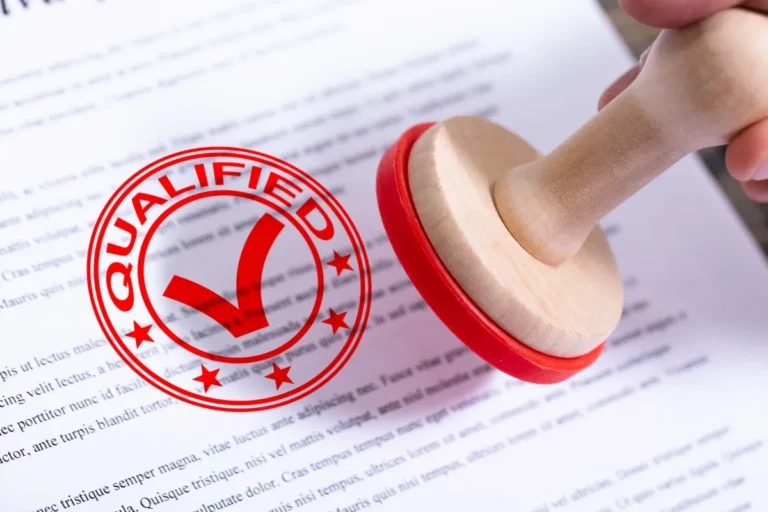How to Escape from Cheque Bounce Case in India: A Complete Legal Guide
If you are wondering how to escape from a cheque bounce case, you are not alone. Cheques continue to play a vital role in financial transactions despite the rise of digital payments. However, this also means that cheque bounce cases have become increasingly common. If you are in this situation, it is important to know your rights. You should also understand the legal options available under the Negotiable Instruments Act, 1881.
At Aditya & Co. Advocates, Your Constant Legal Guardian, we think knowing the law is important. It is the first step to protecting your interests. This guide walks you through the intricacies of cheque bounce cases, the cheque bounce case process, available defenses, important case laws, and practical solutions to help you successfully escape from a cheque bounce case.
Understanding Section 138 of the Negotiable Instruments Act
A cheque bounce becomes a criminal offense under Section 138 if:
- The cheque was presented within three months of its date.
- The cheque was dishonored due to insufficient funds or exceeding the arrangements.
- A legal notice was issued to the drawer within 30 days of dishonor.
- The drawer failed to make payment within 15 days of receiving the notice.
If these conditions aren’t met, the case may be dismissed outright. It’s important to remember that these are mandatory pre-conditions, and any deviation can provide a strong defense to the accused. Understanding the cheque bounce case procedure is crucial to building your defence effectively.
Procedural Defects: Your First Line of Defence
The procedural requirements under Section 138 are not mere formalities; they are mandatory steps. Common procedural lapses that can help the accused include:
- Late Issuance of Notice: If the notice is served after 30 days, the complaint becomes invalid.
- Filing Case Before 15-Day Period: The drawer must be given 15 days to make payment. Filing a case earlier can lead to dismissal.
- Incorrect Address for Notice: If the notice is sent to an old or incorrect address, and the accused did not receive it, the case weakens significantly.
Courts have emphasized these procedural safeguards in cases such as K.R. Indira v. Dr. G. Adinarayana, where the Supreme Court held that non-compliance with these requirements renders the case unsustainable.
How to Escape from Cheque Bounce Case: Legal Defences Available
Even if procedural steps are followed correctly, the accused has several substantive legal defenses to escape from a cheque bounce case:

Challenge the Presumption of Debt (Section 139)
The law assumes that the cheque was issued for a legally enforceable debt. However, you can rebut this by:
- Proving the cheque was issued as a security and not for debt repayment.
- Demonstrating that there was no legal liability or enforceable debt at the time the cheque was issued.
- Establishing that the debt is time-barred under the Limitation Act, 1963.
The burden of proof for the accused is to create a probable doubt, not to prove the case beyond a reasonable doubt. Once a doubt is raised, the onus shifts back to the complainant.
Argue Material Alteration (Section 87)
If the cheque was materially altered, such as changes in the date, amount, or payee name, without the drawer’s consent, the cheque becomes void. This is particularly relevant in cases where blank cheques have been misused.
Dispute Proper Service of Notice
If the statutory notice was sent incorrectly or was never served, this severely weakens the case. In C.C. Alavi Haji v. Palapetty Muhammed, the Supreme Court ruled that while there is a presumption of service, it can be rebutted by showing that the accused did not live at the address or did not receive the notice.
File a Petition to Quash the Case (Section 482 CrPC)
The accused can approach the High Court to quash the complaint if it is frivolous, malicious, or does not meet the legal criteria under Section 138. Courts use this discretion carefully but are inclined to dismiss cases lacking essential ingredients.
Consider Compounding the Offence (Section 147)
Section 147 of the NI Act allows for the compounding of offences, even after the initiation of criminal proceedings. Compounding is a preferred solution in many cases and is encouraged by courts to reduce pendency and promote amicable settlements.
Cheque Bounce Case Process Explained
Understanding the cheque bounce case process is essential for anyone involved in such a case. The steps are as follows:
- Presentation of Cheque: The cheque must be presented within its validity period (three months).
- Cheque Dishonour: The bank returns the cheque unpaid, citing insufficient funds or other reasons.
- Legal Notice Issued: The payee must issue a legal notice within 30 days of dishonour.
- Waiting Period: The drawer has 15 days from receiving the notice to make the payment.
- Filing of Complaint: If payment is not made, the payee can file a criminal complaint under Section 138.
Timely action and understanding of this procedure are crucial for both the complainant and the accused.
Judicial Principles That Support the Accused
- Security Cheques Not Enforceable: Indus Airways Pvt. Ltd. v. Magnum Aviation Pvt. Ltd. (2014) clarified that cheques issued purely for security are not actionable under Section 138.
- Presumption is Rebuttable: Rangappa v. Sri Mohan (2010) established that the presumption under Section 139 can be rebutted by a probable defence.
- Time-Barred Debts Not Enforceable: A.V. Murthy v. B.S. Nagabasavanna (2002) confirmed that cheques issued for time-barred debts without fresh written acknowledgment are not legally enforceable.
- Material Alteration Invalidates Cheque: Joseph v. Philip Joseph (1987) held that any material alteration without the drawer’s consent makes the cheque void.
What is the Cheque Bounce Case Time Limit?
The Cheque Bounce Case Time Limit is governed by statutory provisions:

- The cheque must be presented within three months.
- A legal notice must be issued within 30 days of dishonour.
- The complaint must be filed within one month from the expiry of the 15-day notice period.
Missing these deadlines can render the complaint invalid and offer the accused a strong defence to escape from a cheque bounce case.
Alternative Remedies and Practical Steps
- Cross-Examine Effectively: Expose inconsistencies or contradictions in the complainant’s evidence. Focus on the absence of documentation proving debt or liability.
- Initiate Civil Proceedings: File a civil case for a declaration that the cheque is void due to misuse, fraud, or coercion. This parallel action strengthens your criminal defence.
- Seek Interim Injunction: If the cheque is likely to be misused, approach the civil court for an injunction against its presentation.
- Explore ADR Mechanisms: Alternative forums like Lok Adalat and mediation offer quicker, cost-effective settlements. A settlement through these forums results in valid compounding under Section 147.
Key Considerations for Accused Persons
- Keep records of all financial transactions.
- Preserve copies of any communications (emails, letters, or WhatsApp messages) that prove the cheque was issued for purposes other than settling a debt.
- Avoid issuing blank cheques wherever possible.
- In cases of financial distress, proactively communicate with creditors to avoid escalation.
Final Word from Your Constant Legal Guardian
Facing a cheque bounce case can be overwhelming, but remember that the law offers multiple remedies and protections. From challenging procedural lapses to presenting substantive defences, you have options to fight back. Timely legal counsel, preservation of evidence, and a well-planned defence strategy are critical to protecting your interests.
At Aditya & Co. Advocates, we pride ourselves on being available 24/7 to guide you through such challenging times. Our expert team stands ready to help you navigate the legal maze and secure a favourable outcome.







